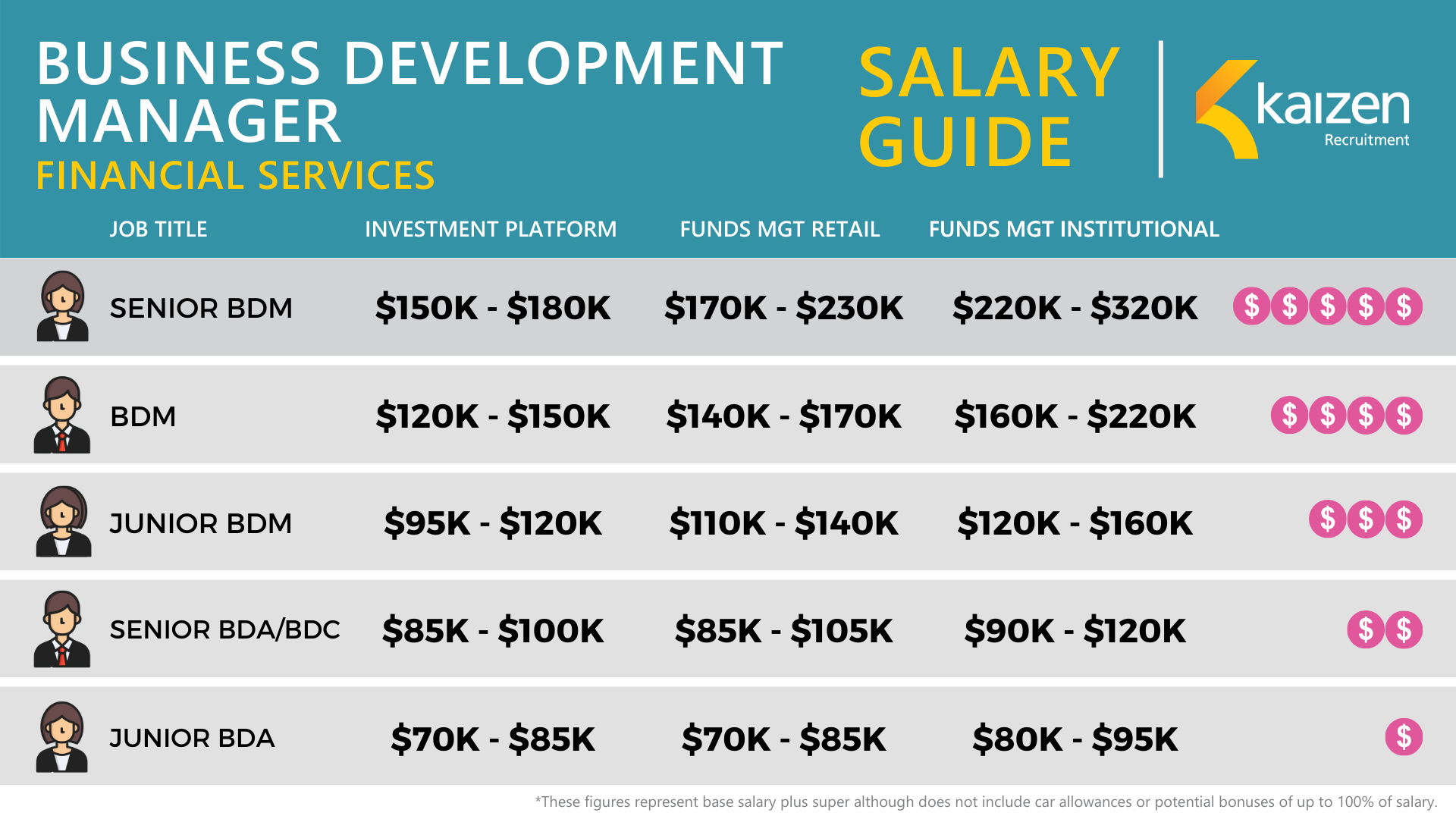Business Development Managers Salary Guide Financial Services 2021
Despite the ongoing pandemic, the superannuation and investment management industry remain steady with a few funds even experiencing record funds under management. Areas of focus among funds, tend to be across internal distribution to continue this growth in an upward trajectory. The market in turn has become very competitive for BDMs with specific skillsets, networks and experience. The challenge then, is how do these Investment managers attract talented BDMs? What incentives should be implemented?
Among other areas like product suite, investment philosophy and ESG, it shouldn’t be surprising that salary and bonus still tend to be a key motivating factor that BDMs are considering. In a market competing for solid BDMs, we have found that salaries have remained buoyant and even increased. Bonus structures, while relatively disparate across organisations, have become more attractive, whether that be an increased percentage of base salary, or increased basis points on net and gross inflows. Additionally, the old sign-on bonus, a somewhat uncommon incentive post-GFC, has even slipped its way into these more recent discussions to get candidates across the line.
As funds internalise their investment capability, the institutional business development management market remains buoyant as well. However, talent tends to be well-grounded in their roles given often lengthy cycle length for institutional deals.
What skills are firms looking for in a business development professional?
Successful business development professionals have extensive networks in either particular or diverse area. Within funds management, professionals tend to have extensive networks across retail, wholesale, and institutional clients. Broken down further being HNW/UHNW investors, wholesale IFAs and adviser dealer-groups and institutions such as industry super funds and large corporates. Firms generally only consider BDMs that have an existing client network, which can take some time to establish. Strong BDMs are also subject matter experts in their fund’s products, strategies, and investment philosophies.
What qualifications are required?
Most fund/investment managers and platform providers expect their BDMs to have a bachelor’s degree as a minimum. Retail fund manager BDMs are RG 146 qualified and most institutional fund manager BDMs have completed either a CFA designation or a Master’s in (Applied) Finance, with some BDMs completing both. Many BDMs also tend to leverage off industry body memberships to connect with existing and prospective clients.
What is the career path to become a BDM?
Many platforms, retail funds management BDM’s started off their career within financial planning, in either a client service, paraplanner or associate adviser capacity. This role is pivotal in understanding the financial planning process and understanding the expectations of the end client. Generally, after 18 months to 5 years working within a financial planning related role, the next step is to move into a business development associate (BDA) /consultant (BDC) position to learn the tools required to become a successful business development manager. Most BDAs undertake an ‘apprenticeship’ over a period of 18 months to 3.5 years before given the opportunity to step up into a business development manager.
In contrast to the above, most institutional fund manager BDMs generally come from an investment analyst background, either buy-side or sell-side. Institutional BDMs generally have more in-depth and detailed investment conversations with their clients, hence, require greater market and investment knowledge. Their clients include asset consultants, superannuation funds, government organisations etc.
What bonus can a BDM expect to receive?
Bonuses vary from organisation to organisation, with majority of BDMs receiving bonuses between 35% – 55% of their base salary. Others see a bonus potential extending into the 80%-100% range, dependent on asset class and the performance of the fund. Bonuses are in many cases are based on a combination of qualitative and quantitative (individual and company) factors. Retail BDMs often receive bonuses based on either net or gross inflows, paid quarterly.
What does a head of sales professional get paid?
Salaries of head of sales/ business development professionals can vary substantially depending on the size of organisation and how many direct reports in the sales team. A salary for a head of distribution for a fund manager can range from a low of $180k and up to a high $350k.
For all client services, business development associate or business development manager roles within insurance, investment platforms or funds management, please contact Simon Gvalda at Kaizen Recruitment on 0412 122 593 or simon@kaizenrecruitment.com.au or Fiona Lu at Kaizen Recruitment on 0412 123 706 or fiona@kaizenrecruitment.com.au
Kaizen Recruitment specialises financial services recruitment across funds management, wealth management, superannuation, investment consulting and insurance. We are based in Melbourne and Sydney. For assistance or further information please telephone our office at +61 3 9095 7157 or submit an online form.
Like what you see?
Please feel welcome to join
Kaizen Recruitment’s mailing list











